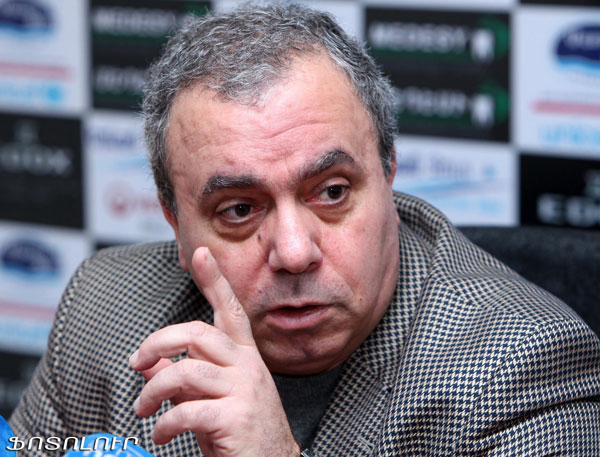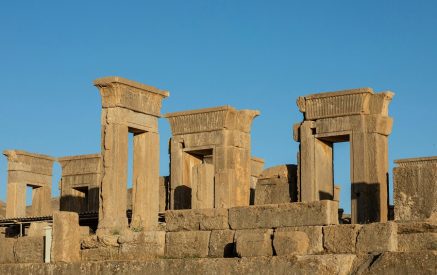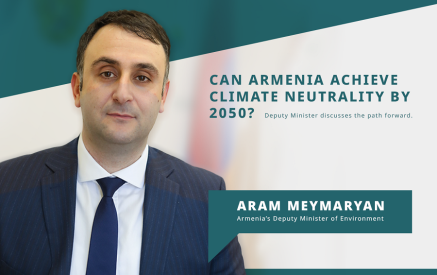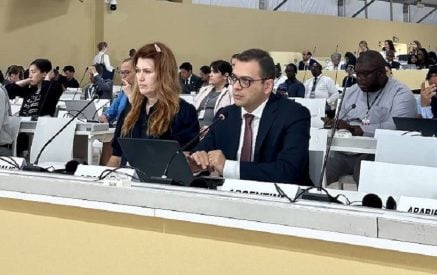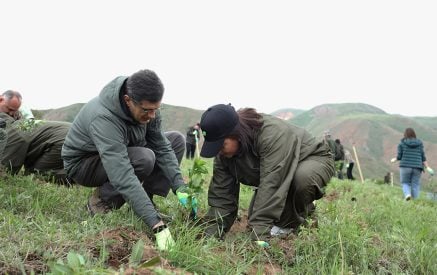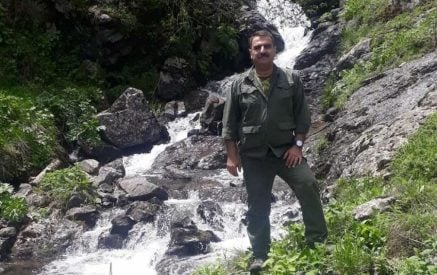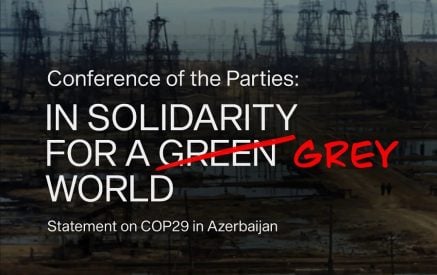Former Prime Minister, ANC MP Hrant Bagratyan about the recent economic developments
– In spite of the forecast by international organizations that Armenia will close this year with an economic growth of 0%, the Prime Minister recently announced that 2.5-3% economic growth will be provided at the expense of mining industry and services sector. To the point, still in December, even earlier, you have warned about 1-2% economic growth. It was also said that we should be cautious about 0% growth or decline. Now, what do you think, are Hovik Abrahamyan’s expectations realistic? Can we register real economic growth rates in your mentioned industries, or there will be purely digital subsequent figures?
– I assume that the Prime Minister’s higher expectations are associated with his efforts conducted with major investors. It is literally said about the EaEU advantages, but they are not visible. Vice Versa. However, the Prime Minister’s, the IMF’s or the figures I mentioned do not differ much in terms of economic growth. Do not forget that the GDP calculation methodology is as such that the statistical errors may make up to 3%.
– Do you mean that the NSS can make manipulations?
Read also
– Definitely. To the point, it may also do against the government. Of course, in this case, I would not use the word manipulation.
– An example?
– Let’s take, for example, the most recent statistics on 2015 January-March macroeconomic data. This assumes that the economy grew by 2.5%, trade (domestic) dropped by 6.3% while the foreign trade decreased by 28.5%. Including, the export dropped by 23.1%. At the same time, the average monthly nominal wage increased by 10.3 while the real wages – by 5.2%. The pension fees increased. What does it show: the production increases while the trade significantly goes down? What? Are they working on the storage? People’s revenues are increasing, but the trade (growth in services and gravity weight are not essential) falls, the bank deposits are falling. What? Do they export money? The Government representative (on the level of Deputy Minister of Economy) says that foreign trade figures are incomparable to entering to the EaEU. Nevertheless, the NSS publish what it publishes.
– Prime Minister completes one year in office. What are your assessments? Where was Hovik Abrahamyan’s government successful? And where did he fail? What chances did he miss? What was the impact of the situation in Russia: reduction of transfers coming to Armenia, the Russian ruble’s decline?
– I have repeatedly voiced the government’s economic policy assessments. It is a long subject for talking. If short, the number one task is generating investments. A circumstance that was omitted by the former government, and dramatically inhibit the economic development. This government has poured efforts in this direction. Laws and decrees were adopted. Eventually, favorable conditions were created for the major companies. Some things were also done for the SMEs. But the economy is a living organism. If you improve the major companies conditions a couple of times, and just a little for the small and medium, then consider that you worsen the latter’s conditions. As a result, the intensification of investments is far from the demand. This is on the one hand. But there is one more important factor. After becoming a member of the EaEU, in the period between December 2014 – March 2015, the dram appreciated against the ruble by nearly 25 percent. The slightest advantage that the government was expecting from the process, a growth in export to Russia, vanished. Please note that we are talking about the appreciation of the dram against the ruble. In this regard, we did not have any problems: the transfers in rubles drastically increased. In other words, there were ideal conditions for escalating the economic growth. However, look that the Central Bank allowed appreciation of the dram against the ruble. There were (and are) other errors in the Central Bank policy. And this became the major factor to slow down the economic growth. There is no coordination between the Central Bank and the Government policies.
– Who should be coordinating the Central Bank policy?
– According to the current Constitution, the Central Bank reports to the National Assembly and the President of the Republic of Armenia (they are the ones who appoint and dismiss the head of the Central Bank).
– To what extent the excuses are justified that the main obstacle to progress the government are the geopolitical developments.
– Of course, the accession to the Eurasian Economic Union should slow down and slowed down the economic growth. Please note, at this point, the EaEU foundation is the customs union. While the EaEU countries are not natural trading partners. In economic language, they cannot establish trade between each other. For example, what trade can be between Kazakhstan and Russia if they export (oil, gas, and grain) and import the same goods? The processes between them look like more political. Russia has problems with both Kazakhstan and Belarus. Now, this Union can record some progress only in the case of a deeper integration: monetary union, common investment funds, joint productions. It is no accidence that V. Putin was quick to realize it and now he is busy with it. However, the decision to join the EaEU was made by the authorities, and the government program was elaborated for joining the EaEU.
– People in Armenia are very excited about the agreements obtained by the super powers over Iran, also about Serge Sargsyan’s visit to China and the possibility of operation of the Silk Road. If we leave the romanticism behind, actually what expectations should we have? How should we realize the granted opportunities? Do the current authorities have the resource – to use the skills correctly?
– The economic implications of agreements around Iran must be carefully approached. But it certainly can give a positive impetus to Armenia’s economy. I am personally interested in having a real alternative source of energy carriers. In all cases, it should reduce the power consumption of Armenia’s economy. The deepening of trade relations with China, the concept of the Silk Road do not promise great benefits to our economy now, nor in the near future. The political and military cooperation with China is more interesting and primary. I think Serzh Sargsyan’s visit primarily was associated with this.
Interview by Nelly GRIGORYAN


















































